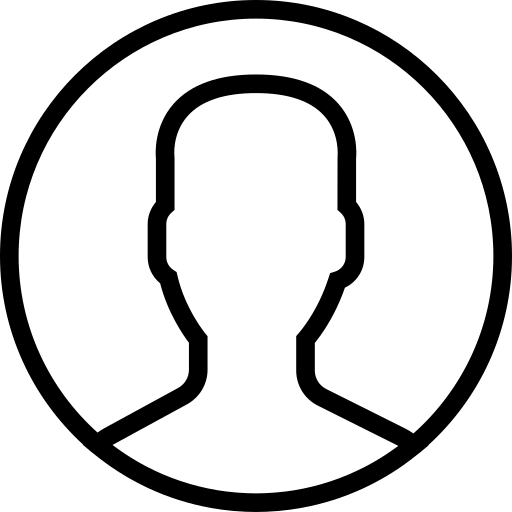Mongolia has long been a focal point for international mining firms. Its rich deposits of coal, copper, gold, uranium, and rare earth minerals make it a strategically vital country in the global resource economy. Landmark projects like Oyu Tolgoi and Tavan Tolgoi have drawn international players, while rising exploration licenses continue to attract new entrants. Yet while geology puts Mongolia on the map, people determine the success of mining operations.
For international mining firms, entering and sustaining operations in Mongolia requires navigating a small, specialized, and highly networked labor market. This market has unique dynamics—talent is scarce, competition is high, and cultural alignment is essential. That is why many global mining companies, from multinational giants to mid-sized operators, increasingly rely on local recruitment services and executive search partners.
This blog explores the strategic reasons why international mining firms turn to local recruitment services in Mongolia, the industries and roles most affected, the talent challenges they face, and how recruitment partners provide solutions that ensure long-term operational success.
Mongolia’s Mining Sector: Global Significance, Local Workforce
Mongolia’s mining industry is the backbone of its economy, contributing more than 20% of GDP and over 80% of export earnings. The country sits between China and Russia, making it a vital supplier of raw materials for Asia’s largest economies.
For firms exploring Mongolia, the opportunity is clear. But workforce realities are not. Unlike larger economies with deep and diverse labor pools, Mongolia’s labor market is compact, concentrated, and unevenly developed across skills. While some roles have strong local expertise—such as geologists, mining engineers, and truck operators—others remain underdeveloped, such as environmental specialists, digital mining technology experts, and senior project managers.
This combination creates both opportunities and challenges for recruitment.
Why Recruitment Is Complex in Mongolia’s Mining Industry
a) A Small, Specialized Talent Pool
The pool of qualified mining professionals in Mongolia is closer to a “talent puddle” than a talent pool. Most of the country’s skilled professionals are already employed in major projects, and competition for them is intense.
b) High Demand Across All Levels
Mining firms compete not only with each other but also with supporting industries like construction, logistics, and energy, which rely on similar technical skills.
c) Cultural and Operational Fit
For foreign firms, hiring is not just about technical ability. Employees must adapt to international safety standards, corporate cultures, and cross-border collaboration—something that requires careful assessment.
d) Retention and Turnover Risks
Mining work is demanding, and retention challenges are frequent. Companies that fail to align compensation, career development, and cultural fit face higher turnover costs.
e) Regulatory & Compliance Environment
Labor laws in Mongolia continue to evolve, requiring compliance with local hiring quotas, work permits for expatriates, and tax obligations. Recruitment firms help international players remain compliant.
Why International Firms Use Local Recruitment Partners
Access to Passive Talent
Many of Mongolia’s best mining professionals are not actively looking for new jobs. Local recruitment partners maintain trusted networks and relationships, giving companies access to this “hidden market.”
Reducing Hiring Risks
Bad hires in mining projects can cost millions in delays, accidents, or compliance issues. Recruitment firms conduct cultural fit assessments, background checks, and reference verifications to minimize risks.
Speed and Efficiency
In mining, delays are expensive. Recruitment agencies already know the market and can fill roles faster than international HR teams trying to build local knowledge from scratch.
Compliance Support
Navigating local labor regulations, expatriate permits, and compensation benchmarking is complex. Local firms ensure alignment with Mongolian laws and norms.
Long-Term Partnerships
The best recruitment firms act not just as hiring providers but as strategic talent partners, offering workforce planning, retention strategies, and succession planning.
4. Key Mining Roles That Recruitment Firms Fill
Senior & Executive Roles
Country Managers
Chief Operating Officers (COO)
Mine Directors
Project Managers
Chief Financial Officers (CFO) for mining projects
Technical Specialists
Geologists and Exploration Experts
Metallurgists
Mining Engineers
Environmental and ESG Specialists
Health & Safety Managers
Operational Roles
Heavy Equipment Operators
Maintenance Technicians
Process Plant Operators
Supply Chain and Logistics Coordinators
Emerging Skills
Digital Mining Technology Experts
Automation Engineers
Sustainability and Renewable Energy Integration Specialists
Industry Case Insights
While each mining firm’s situation is unique, certain common scenarios illustrate why recruitment firms matter:
Oyu Tolgoi: One of the world’s largest copper-gold projects requires multi-disciplinary teams—recruitment firms provide both international expertise and local knowledge.
Coal Projects in South Gobi: Skilled truck operators and logistics experts are in high demand—local recruiters ensure workforce availability.
Junior Exploration Companies: Smaller firms with limited HR capacity rely heavily on local recruitment services to establish their teams quickly.
The Strategic Value of Recruitment Partnerships
Workforce Market Intelligence
Recruitment firms provide insights into salary trends, workforce availability, and turnover rates—critical for planning large-scale projects.
Succession Planning
Mines are long-term investments. Firms need future leaders. Local recruiters help identify and nurture talent pipelines.
Cross-Border Collaboration
With expatriates and local staff working together, cultural integration is key. Recruitment partners play a role in ensuring smooth collaboration.
Looking Ahead: Recruitment in Mongolia’s Mining Future
Mongolia’s mining industry will continue to expand as global demand for copper, coal, and rare earths grows. However, the industry will also evolve:
Automation & Digitalization will demand new technical skills.
Sustainability & ESG will become central to workforce planning.
Global Competition for Talent will intensify, making retention strategies vital.
For international mining firms, the role of recruitment partners will become even more strategic, not just for hiring but for shaping workforce strategies aligned with global mining trends.
Mongolia’s mining sector offers extraordinary opportunities—but also extraordinary challenges when it comes to building and retaining the right workforce. For international firms, success depends on more than capital and geology. It requires a deep understanding of the local labor market, access to trusted networks, and alignment with cultural and regulatory realities.
This is why international mining firms consistently turn to local recruitment services. They don’t just fill jobs—they reduce risks, ensure compliance, access hidden talent, and build sustainable teams that can deliver long-term success in one of the world’s most strategically vital mining landscapes.


